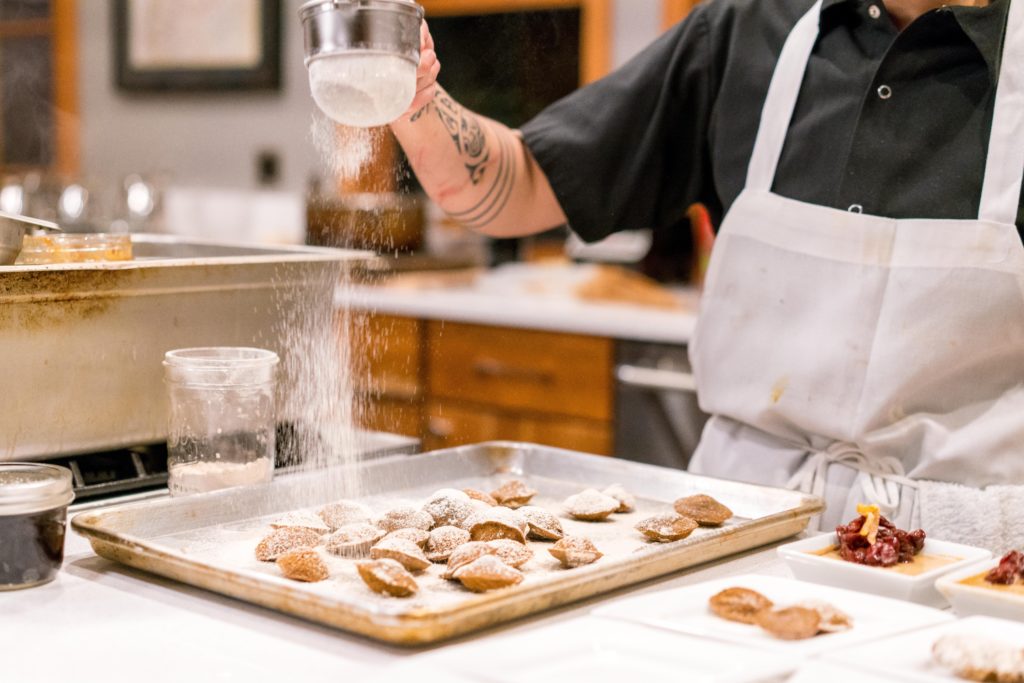Happy Wednesday everyone and welcome to the long-awaited Alert Level 2!
As we continue to slowly come out the other end of NZ’s COVID-19 Alert Level restrictions, a picture is beginning to emerge of who the winners and losers of lockdown are when it comes to business.
Like it or not, the global lockdown and its subsequent recession is a textbook exercise in business Darwinism, or in other words, survival of the fittest.
As such, this week’s GROWisdom comes from American wrestler, Cael Sanderson, who is quoted as saying: “Unless you continually work, evolve and innovate, you’ll learn a quick and painful lesson from someone who has.” In other words, those kiwi businesses who have failed to evolve and adapt to changing market conditions and consumer demands in recent years can, if they haven’t already, expect to fall prey to natural selection, while those who have will reap the benefits of relevance and reduced competition.
Harsh. But true.
So, what does evolution require in 2020? A data-driven online presence and clear data-driven insights into what your customer wants and needs.
To bring this concept to life, I’ve taken four age-old professions and highlighted how the ‘fit’ among them have found ways to evolve over the years to remain relevant and respond to changing demand.
As you read through, I challenge you to ask yourself whether your business is fighting fit, or struggling to exist? Either way – we are here to help you and we are proud to announce that we can now provide you with 100% government subsidised support. Find out more on our dedicated support webpage.
Darwinism in business
Survival of the fittest, natural selection – call it what you like, but don’t call it luck. Businesses that have survived and thrived during these unprecedented times have evolved their way to success by listening to consumers and making smart, data-led decisions to build their presence and popularity. Let’s take a look at some age-old trades and how they’ve evolved over the decades to become more relevant than ever…including during the COVID-19 pandemic.
The Butcher

Struggling to exist…
Butchers have been around in one shape or form for many hundreds of years, with ancient Romans using stone tools to manufacture their cuts of meat. Today, when most of us think of a butcher, we still conjure up an image of the local village store with sausages hanging in the front window and a sign on the street advertising the special of the day. But, needless to say, these traditional bricks and mortar style butchers were hit extremely hard during lockdown and the ‘invisible loss’ we referred to last week is quickly becoming visible, to the point you may sadly never see some of these artisans open their doors again. Those that do manage to survive will have more than likely lost a significant share of the market.
Fighting fit….
The butchery industry as a whole, however, has done a roaring trade over the past 6 weeks – thanks to those forwarding thinking innovators who went virtual. Yes, meat in a box delivered to your home is a thing and it’s a raging success. Think of businesses like The Meat Box, or Hyper Meat who evolved by tapping into consumer demand and taking their trade online. They boomed during lockdown and Alert Level 3, gaining more customers than ever and consolidating their competitive advantage with larger databases which they can now remarket/upsell/cross-sell to.
The Baker

Struggling to Exist:
Like the butcher example above, many main street baking establishments have had high overheads and wages to pay for with zero income during lockdown. Bakeries employing a traditional business model have been battered over the past 6 weeks. This is partly because of the lockdown and partly due to a lack of investment in digital and a failure to establish customer databases for communication. Customers want to interact digitally; they want to search, to contact, to order, to pay and to arrange collection virtually, and the lack of investment by businesses in this space has been costly.
Fighting Fit:
But again, has this meant no cakes and pastries have been sold in Alert Level 3? Nope. Au contraire. Take the City Cake company for example. This bakery business has evolved in recent years, morphing from a suburban cake maker to one that crafts high-end all-natural cakes and boasts a sweet online presence. It uses its customer data effectively to communicate and engage with customers. As a result, repeat business is strong and its potential market has gone from a couple of thousand locals to 300,000 cake lovers with internet access.
The Candlestick Maker

Struggling to Exist:
The ancient business of candlestick making, born well before the days of electricity, died a long time ago, due to its stubborn and eventually redundant focus on candlesticks being a source of light. Seems pretty obvious right? But it wasn’t at the time and many candle stick businesses slowly ‘burnt out’, pardon the pun, in denial of the changes happening in their market.
Fighting Fit:
But that’s not to say candles aren’t still a thing – because I bet most of you have a fragranced candle in your home. And that’s the catch. Innovative candlemakers managed to keep the art of candle making alive by shifting focus from the essential service of bringing light, to the high-end luxury market of bringing delightful fragrance into the home. One of the early adopters of this concept shift, Yankee candles, is now the biggest candlemaker in the US.
Which brings us to ….
Your Accountant
Accountants can be traced back to ancient civilisation, where they were mostly relied on for keeping a record of crop and herd growth. In more modern history, business owners of all sizes have relied on accountants for their financial expertise and understanding of financial laws and processes. But that’s changing now too.
Struggling to Exist:
As increased automation threatens the traditional role of business accounting, and NZ small to medium enterprises (SMEs) demand better advisory options, kiwi accountants are being challenged to upskill in order to remain relevant.
Sure, an accountant can take away the stress of tax and compliance, but let’s be honest, so can software these days – and at a fraction of the price too. And those who continue to focus all their energy on compliance are, I believe, a mere few years away from extinction.
Interestingly, there has been a 30% spike in online searches for accountants during COVID-19 and, trust me, these are not new businesses opening up. These are established business owners who are feeling dissatisfied and wanting more than a transactional relationship. They are business owners who want help to ‘survive then thrive’ post COVID-19.
Fighting Fit:
What today’s business owners need is a growth partner. A professional who not only has your finances covered, but who also helps you seek out growth. A trusted advisor who can point you in the right direction of the best marketers, HR experts and the latest technology deals. An accountant who wants to do more than check IRD boxes. A Grow NZ Accountant who can help you with the what, the how and the who – not just the ‘grow your profit/cut your costs/increase your revenue’ style of accountancy.
If your accountant is an old-school ‘candlestick maker’ type, let us connect you with a full service advisory accountant registered with Grow NZ Business.

